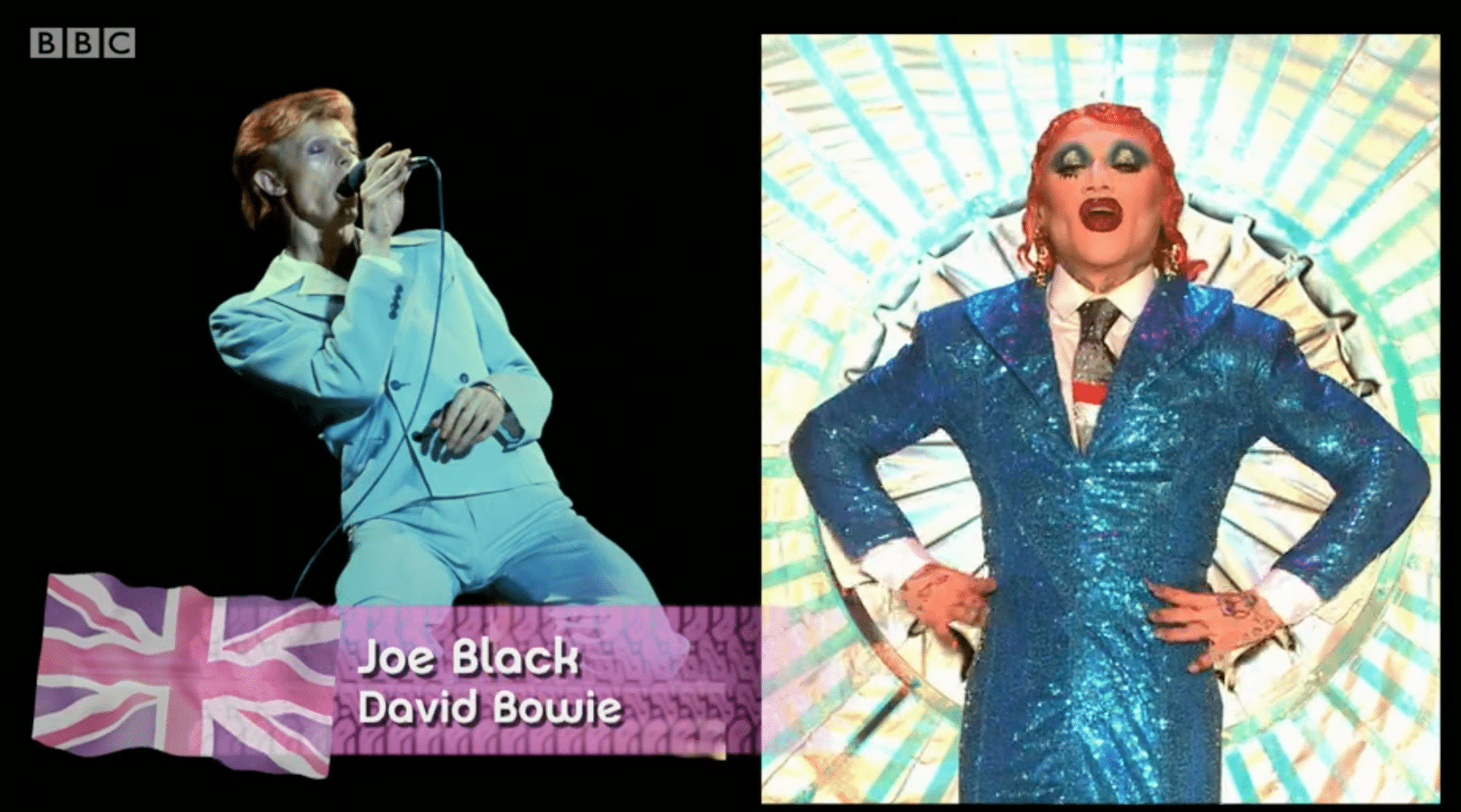Naomi Campbell, Diana Rigg and Dusty: The LGBT+ icons in Drag Race UK and why they’re allies

The queens paid tribute to various British LGBT icons and allies (BBC)
In last night’s scintillating RuPaul’s Drag Race UK season two opener, the 12 queens were asked to design a look that paid homage to a UK gay icon.
The maxi challenge was a homage to the fact that 2020 marked the 50th anniversary of the Gay Liberation Front in the UK, and RuPaul asked the girls to serve a look that pays tribute to their favourite British gay icon: “Someone from the UK who has inspired you be they queer or an ally, living or resting in perfection.”
They were also asked to serve a second look inspired by their home town.
Two queens who had a bit of an issue the gay icon challenge were Tayce and Asttina, who spoke about the lack of representation for queer people of colour in the UK.
When Asttina said she was going to dress as Naomi Campbell, she was told Tayce was also planning a Naomi look as well. They discussed what a struggle it had been to think of anyone else, adding there wasn’t enough POC representation for them growing up. Asttina said: “Growing up there was no one I could look up to who was Black and a gay icon in the UK.”
They both chose Naomi, and rocked their respective looks. We’ve taken a gander at all of the UK LGBT+ icons and allies chosen by the queens in episode one, and all the reasons they deserved to be featured on the Drag Race UK runway.
Naomi Campbell
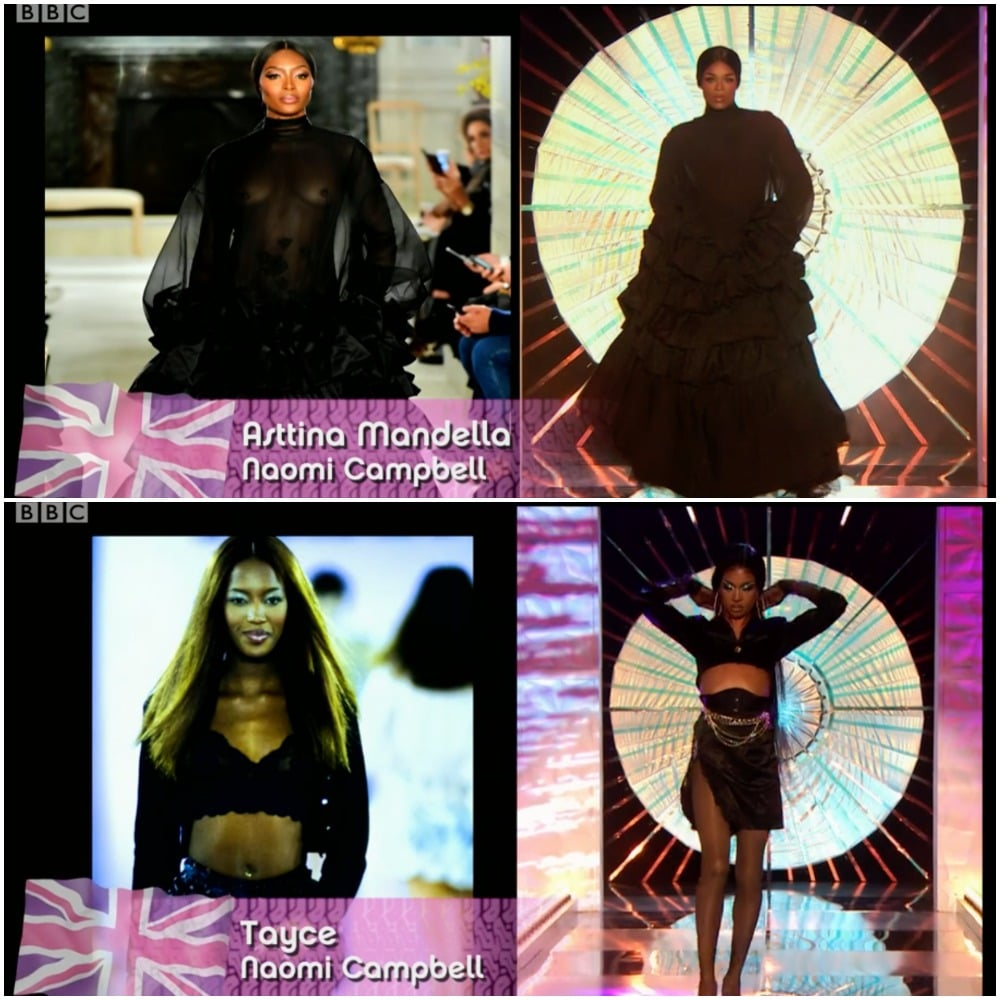
Tayce and Asttina Mandella as Naomi Campbell (BBC)
Supermodel Naomi Campbell is a vocal supporter of the LGBT+ community. At the annual Gay & Lesbian Alliance Against Defamation Awards in 2015, she said she “owed her life” to gay men, saying: “If it wasn’t for gay men I wouldn’t exist. Hair, make-up, designer, photographer, stylist, manicure, hairdresser, I mean, I just wouldn’t exist.”
Diana Rigg
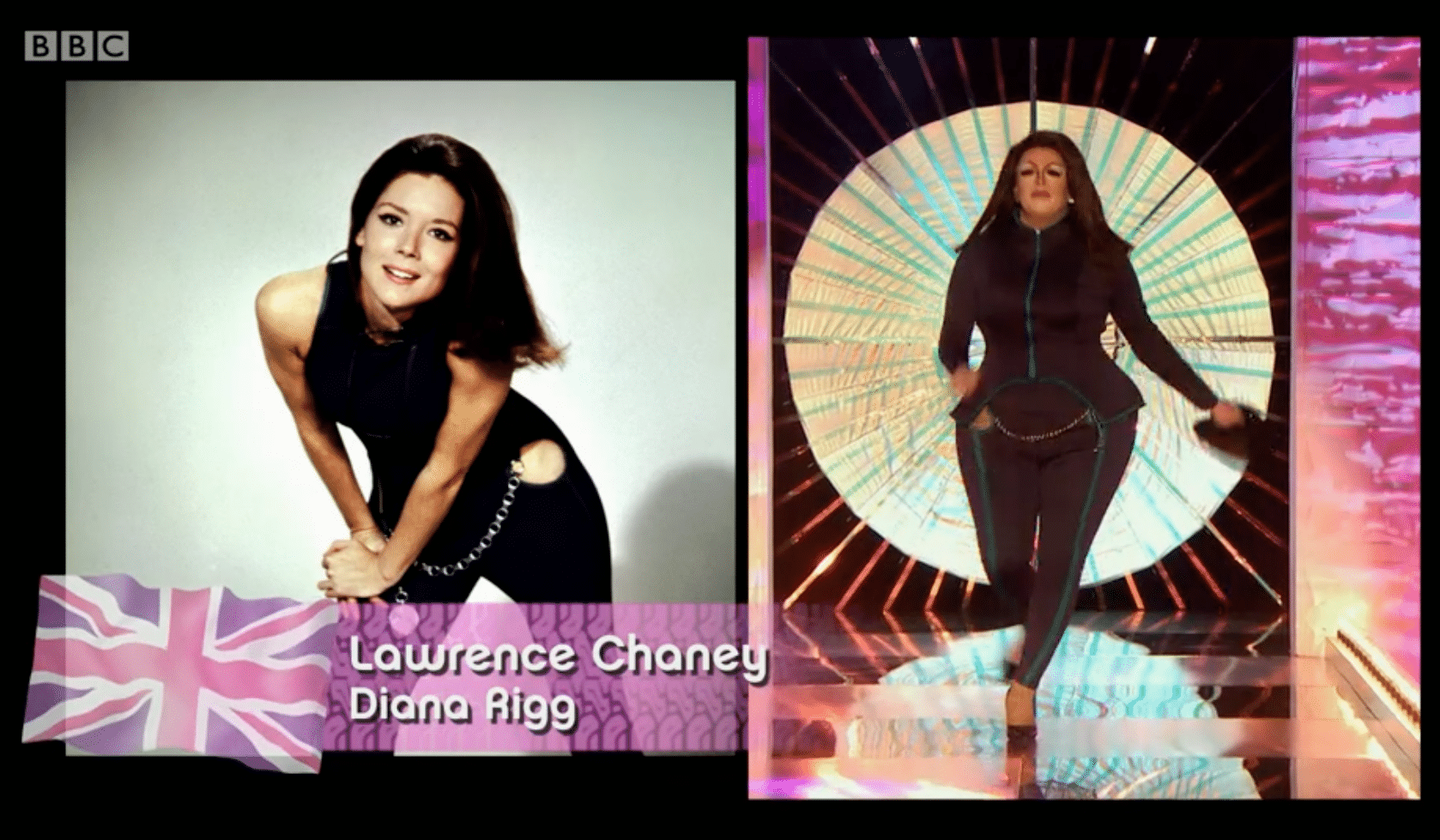
Lawrence Chaney as Diana Rigg (BBC)
Dame Diana Rigg, who sadly died in 2020, was a trailblazing English actress who played Emma Peel in the 1960s TV series The Avengers and, more recently, Olenna Tyrell in Game of Thrones. She’s an ally, a sex symbol and an icon of 1960s feminism.
Dusty Springfield
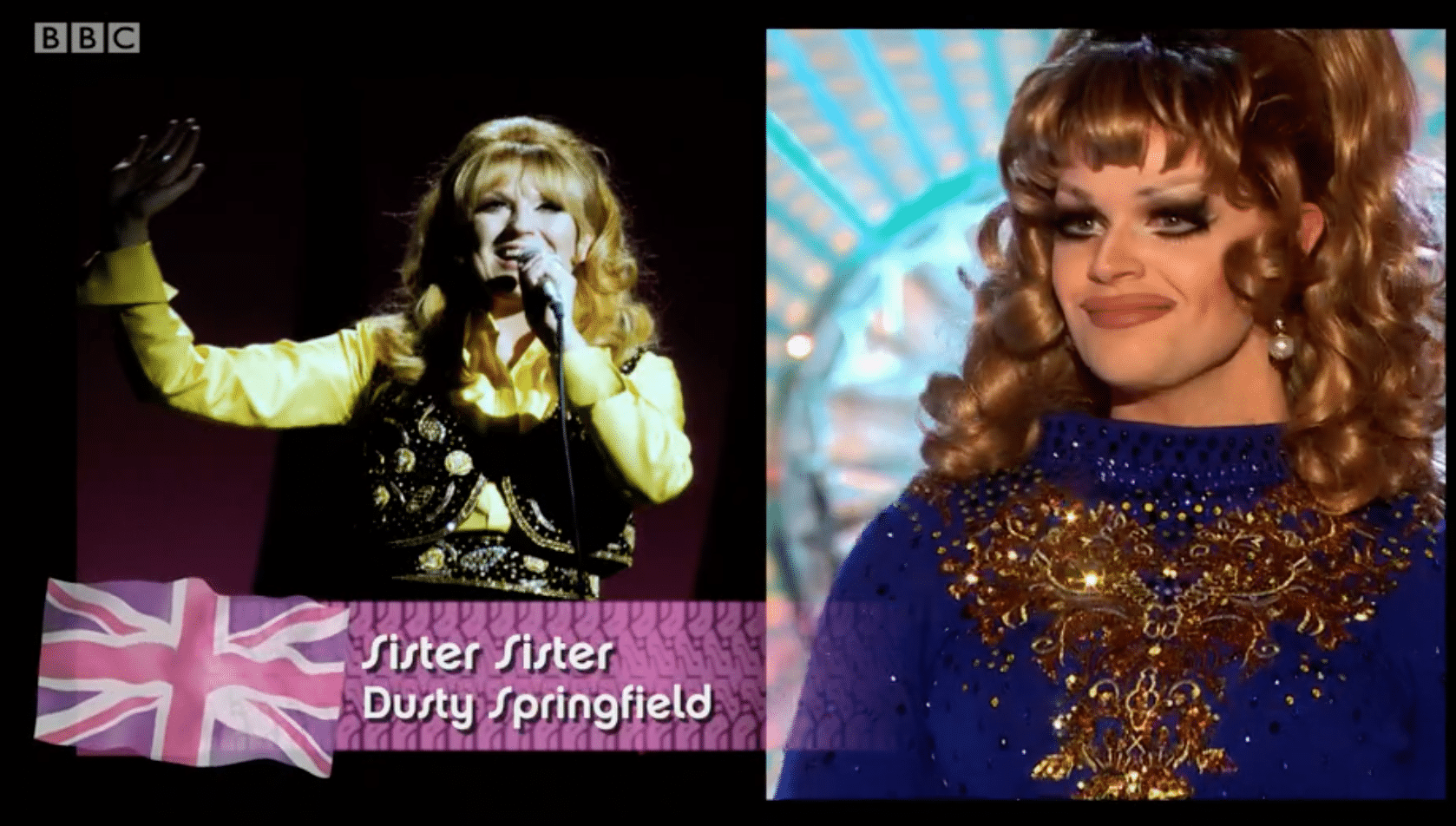
Sister Sister as Dusty Springfield (BBC)
Dusty Springfield is a musical legend and queer icon who sadly died in 1999 at the age of 59.
The “Son of a Preacher Man” singer electrified the British pop scene in the 1960s, and also spoke out about her sexuality at a time when doing so could get her pilloried in the press.
During a 1970 interview with Ray Connolly of the London Evening Standard she said: “I know I’m perfectly capable of being swayed by a girl as by a boy. More and more people feel that way and I don’t see why I shouldn’t.”
Lily Savage
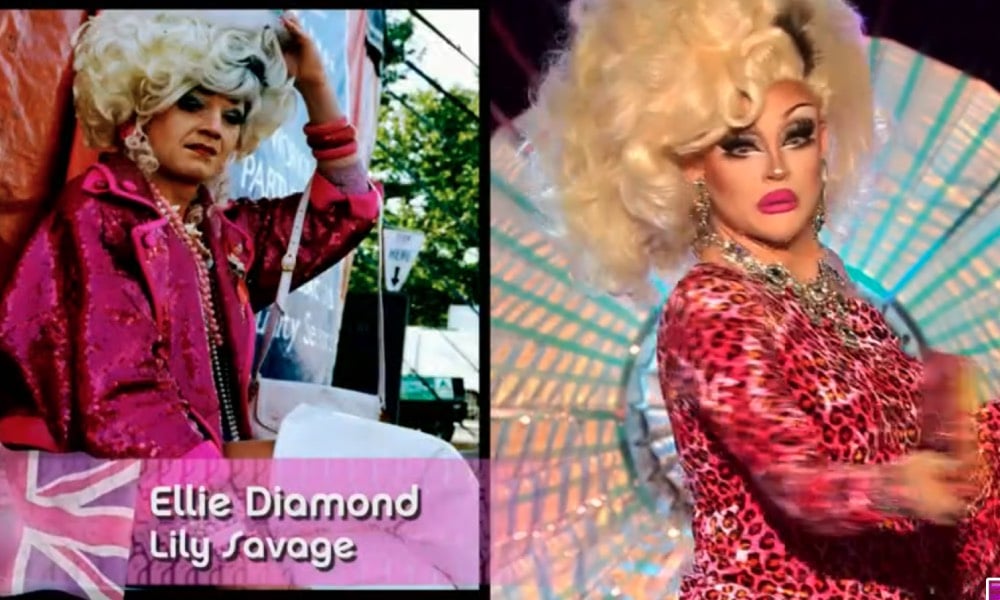
Drag Race UK queen Ellie Diamond paid tribute to Lily Savage. (BBC)
Lily Savage is the iconic creation of Paul O’Grady. Lily was all over the airwaves in the 1990s. Paul O’Grady retired the persona to “a convent in Brittany” in the mid ’00s, after a scorching run of success. However, that’s not the only reason you’ll never find the real Lily ever making an appearance on Drag Race UK: you can find out why here.
Vivienne Westwood
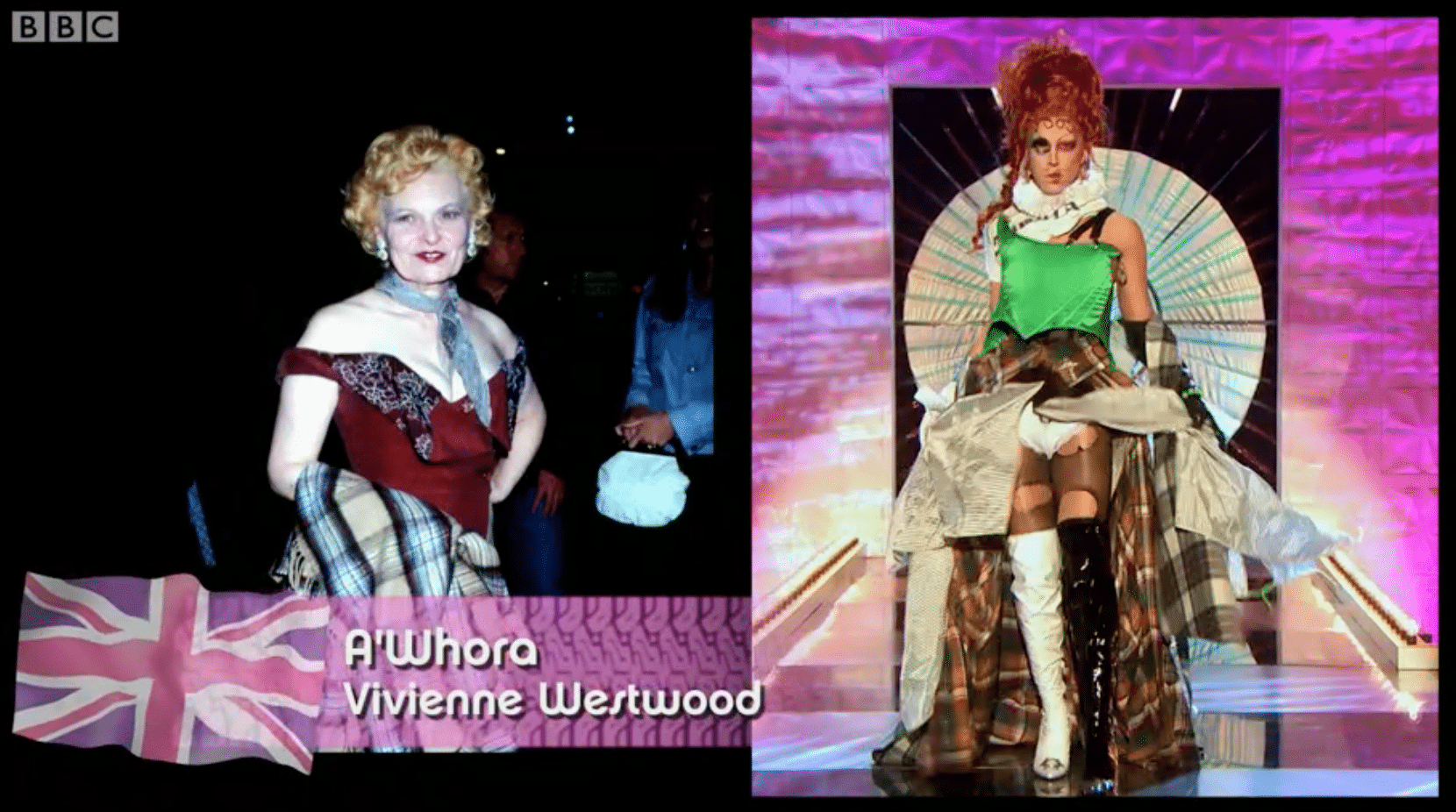
A’Whora as Vivienne Westwood (BBC)
Vivienne Westwood – or Dame Vivienne Isabel Westwood, to give her her full title – is arguably the most famous fashion designer living today, who was responsible for bringing modern punk and new wave fashions into the mainstream.
In the 1970s she pushed the boundaries with controversial designs, including a t-shirt print of two “gay” cowboys that was sold in her London shop SEX and worn by Johnny Rotten, which led to her being charged with making an ‘indecent exhibition’.
Boy George
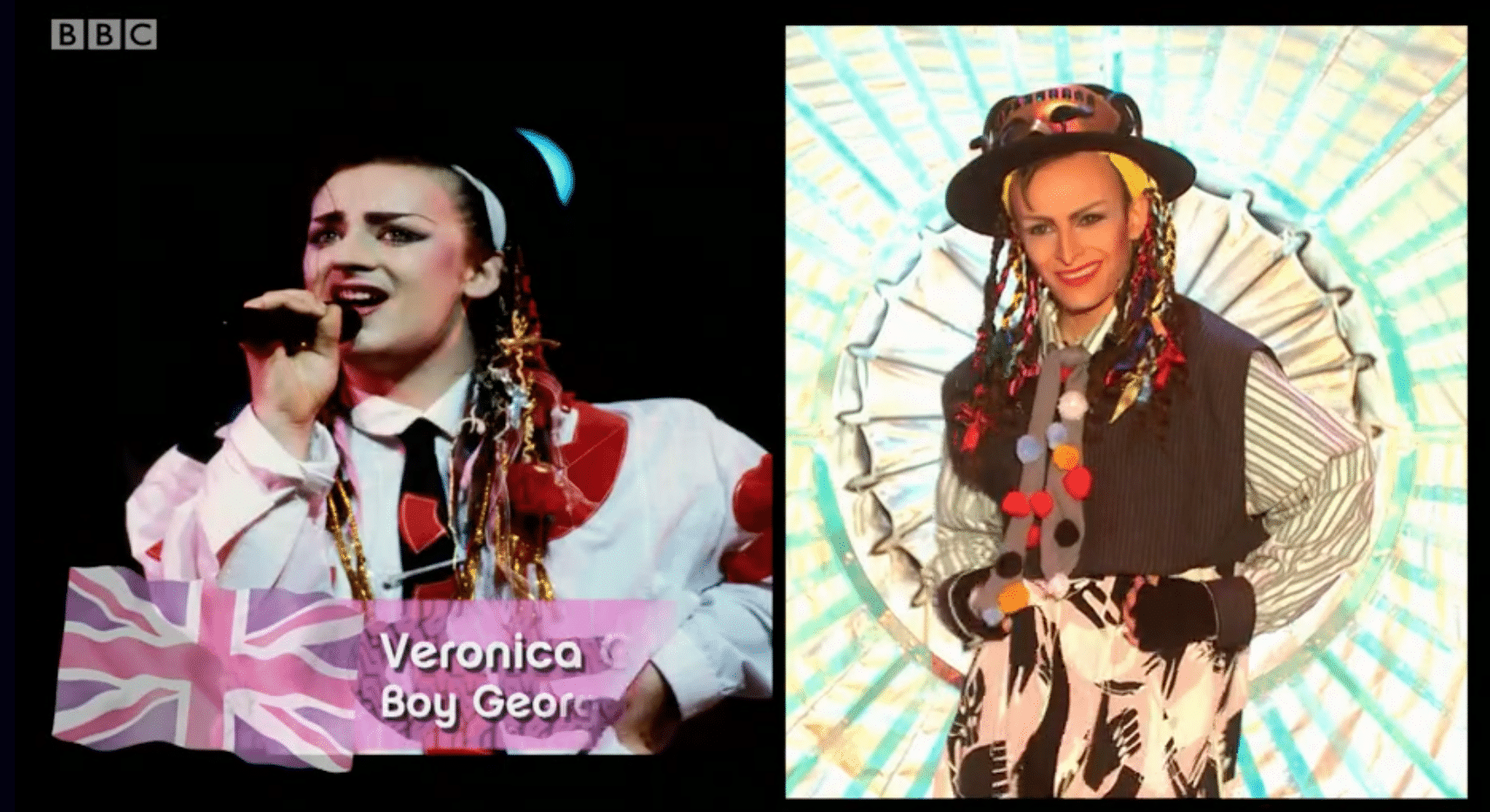
Veronica Green as the iconic Boy George (BBC)
If you need an explanation as to why Boy George is a queer icon, you’ve clearly been living under a rock since 1979. Suffice to say Veronica Green did his iconic look justice, and even came on stage wearing a pair of the singer’s very own shoes (which unfortunately didn’t fit).
But the less said about Boy George in more recent years, the better.
Freddie Mercury
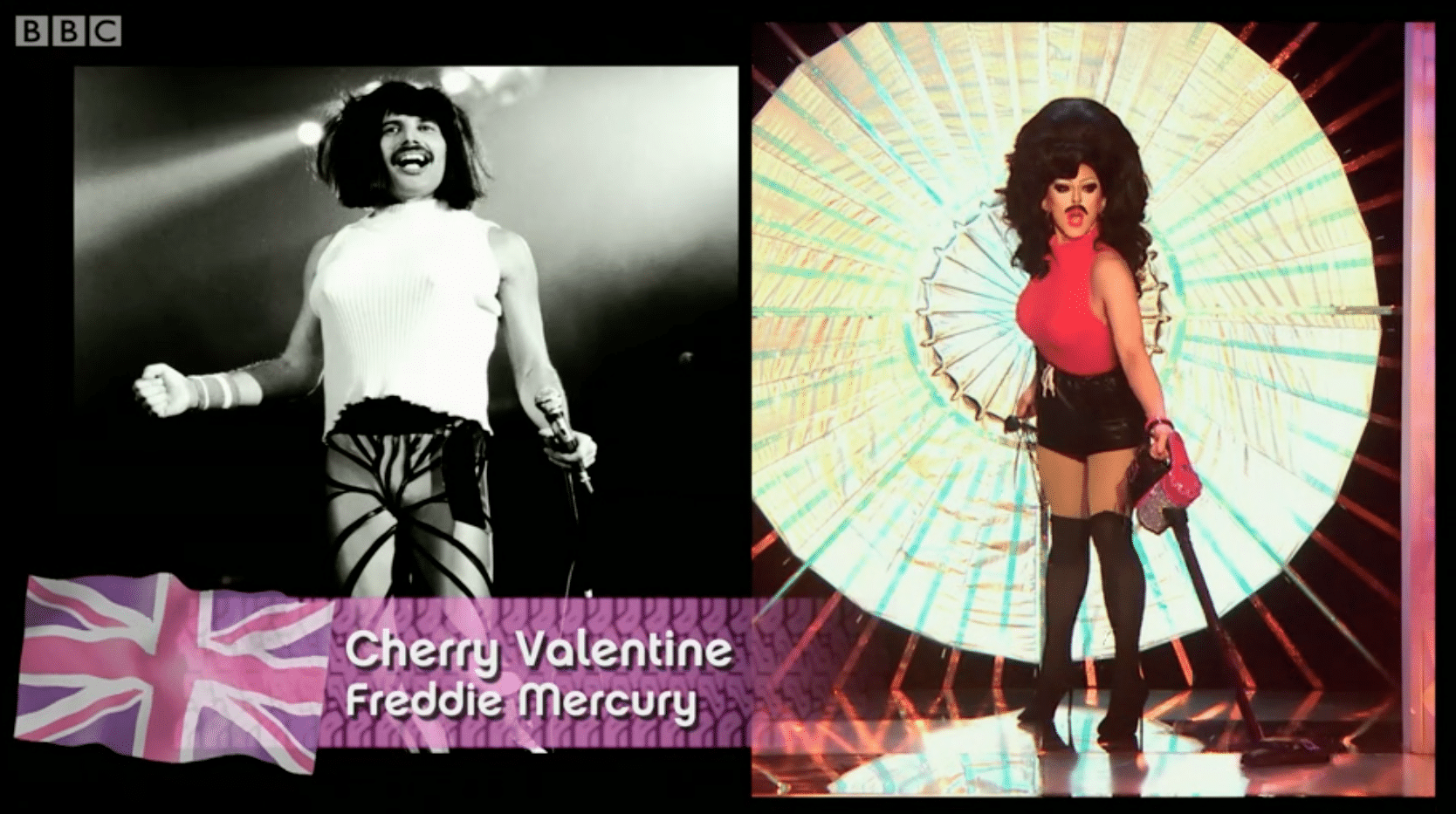
Cherry Valentine as Freddie Mercury (BBC)
As above: we don’t really need to explain why Freddie Mercury is a UK queer icon, or why “I Want to Break Free” is a powerful LGBT+ anthem. However, we should all take a minute to admire Cherry Valentine’s excellent rhinestone vacuum cleaner, which we wish was available to buy in shops.
Alan Turing
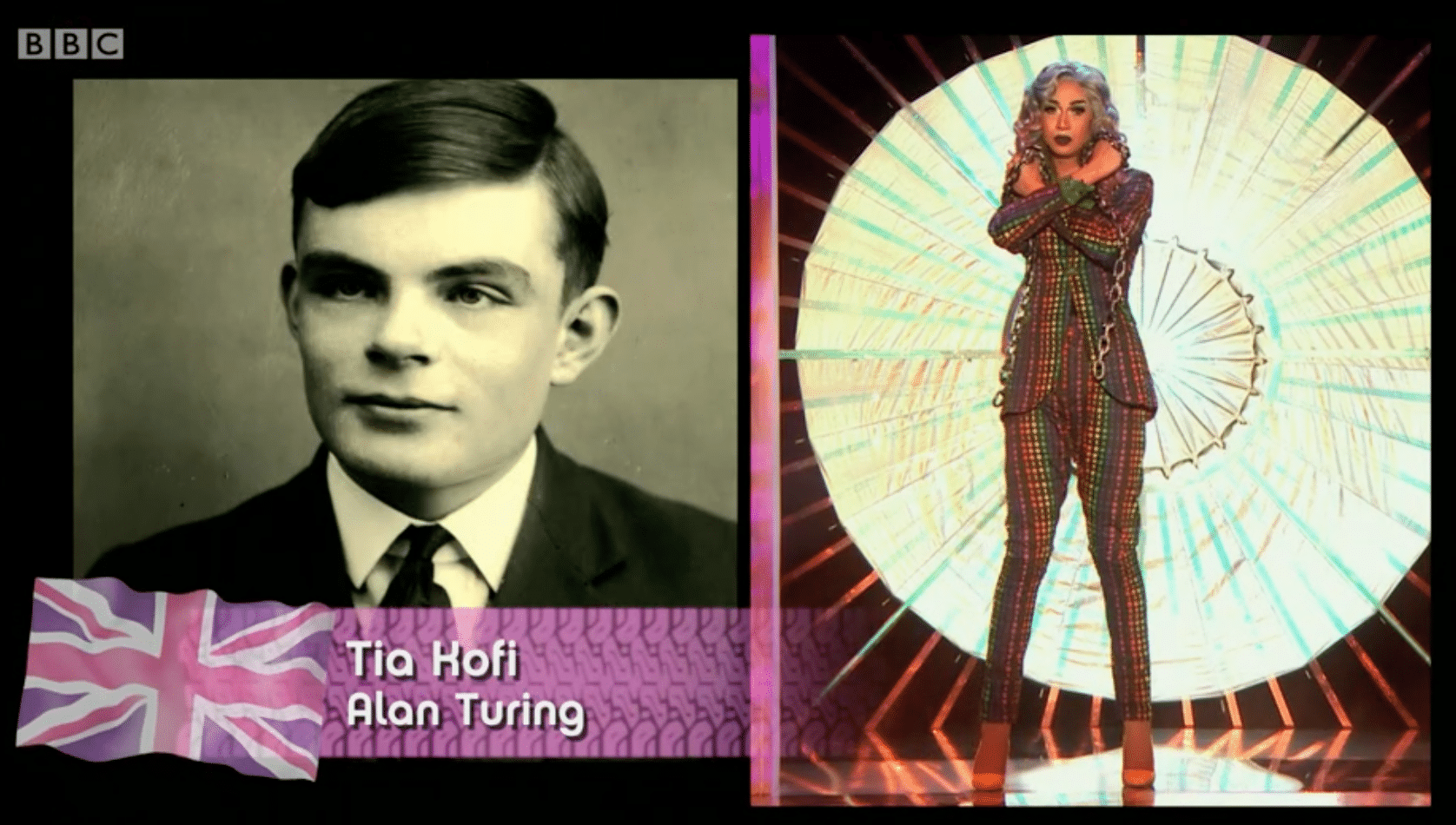
Tia Kofi as WWII code breaker Alan Turing (BBC)
Put your hands up if you really didn’t expect to see a drag version of World War II code breaker Alan Turing on the BBC in 2021? All of you? Yep.
Tia Kofi strode out onto the runway in arguably the most unusual ensemble of the night: a tailored suit covered in binary code, a homage to the brilliant mathematician who played a crucial role in cracking intercepted coded Nazi messages, and who was nevertheless persecuted for being gay.
Princess Julia
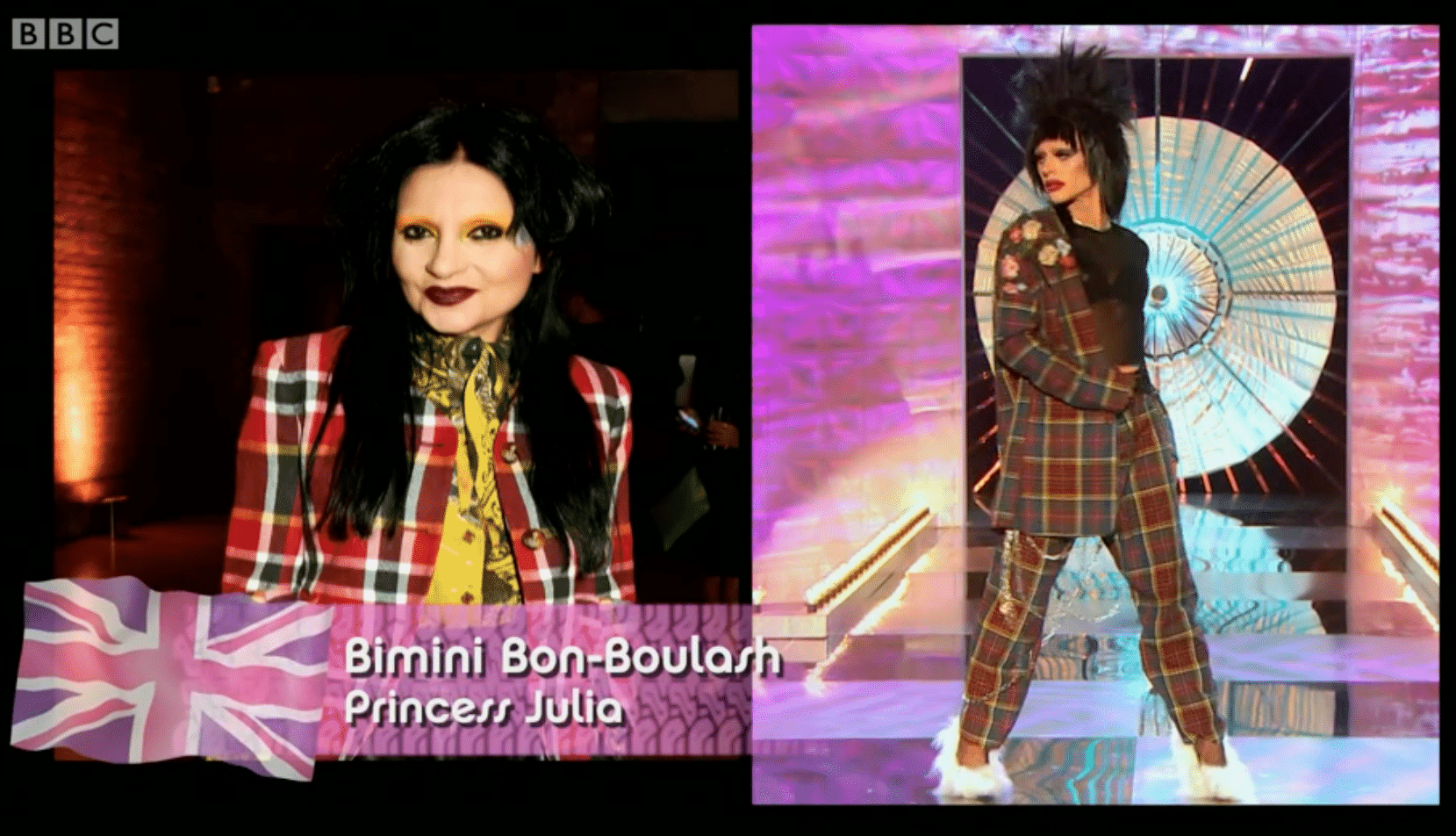
Bimini Bon-Boulash paid homage to Princess Julia (BBC)
Princess Julia is an English DJ and nightlife legend who has been called the “first lady of London’s fashion scene”, she’s also a huge LGBT+ ally who has supported the gay community for decades, used to hang out with Boy George and has performed at London Trans Pride, as well as doing innumerable gigs in support of LGBT+ charities.
Kate Bush
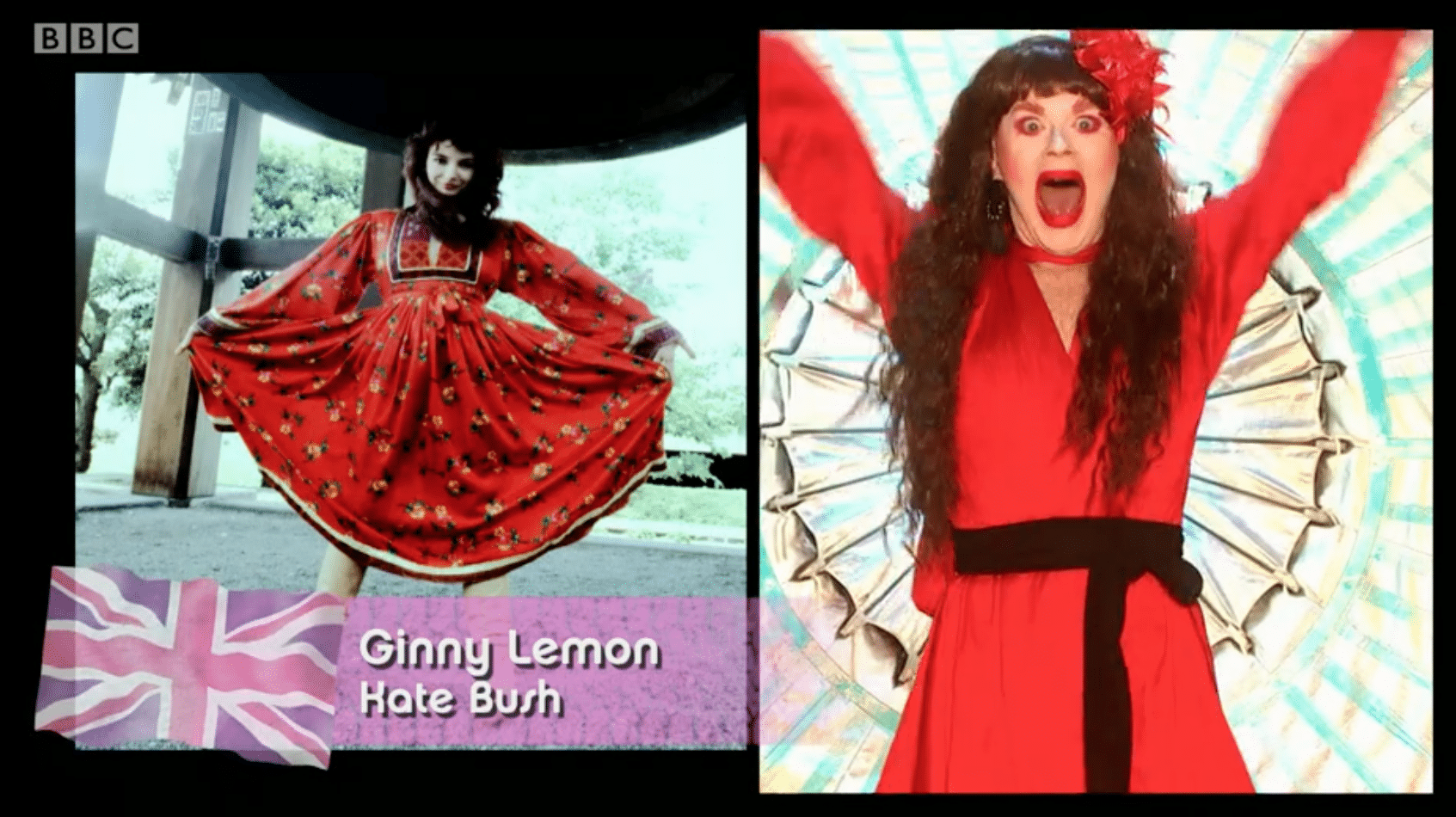
Ginny Lemon served up some ‘Wuthering Tights’ realness (BBC)
Weird and wonderful musical legend Kate Bush has been an LGBT+ icon and hero for years, due to her strangeness, her otherness and her high camp performance style.
Musician Rufus Wainwright once said: “She is the older sister that every gay man wants. She connects so well with a gay audience because she is so removed from the real world.”
David Bowie
David Bowie is the absolute epitome of a British LGBT+ icon, and Joe Black served up a splendid interpretation of the musician’s iconic Life on Mars blue suit and orange hair combo. Sadly, it didn’t go down all that well with the judges, sparking an absolute outcry online, with Joe Black’s many fans saying she was “robbed”, including Tracy Beaker herself. If Tracy thinks the judges got it wrong, they definitely did.
